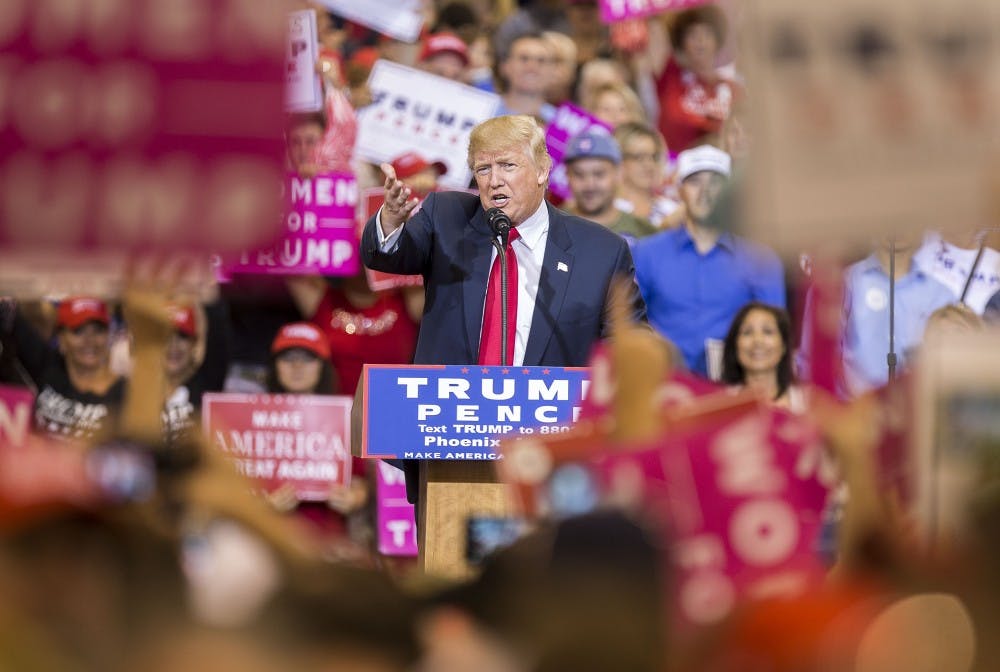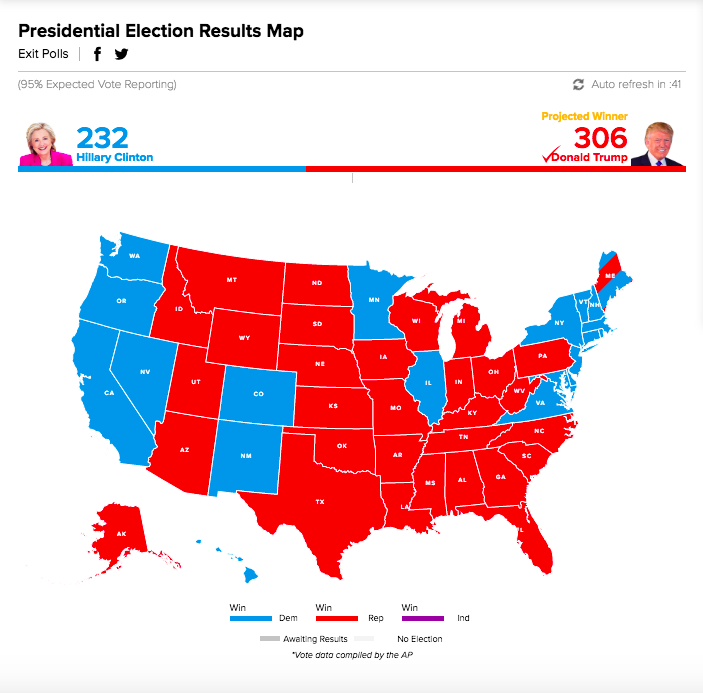Polarizing figures highlighted the presidential ticket this past Election Day — guaranteeing the losing side would perhaps be even more unhappy with the results than previous elections.
Since President-elect Donald Trump won the candidacy on Nov. 8, a wave of opposition has reportedly reached out to the Arizona Republican Party. Trump adversaries are attempting to pressure the Electoral College to vote against Trump when the Electoral College meets to cast their vote on behalf of their respective voting precinct.
Arizona is not the only state seeing resistance against Trump. Last week, Jill Stein called for a recount effort in Michigan, Pennsylvania and Wisconsin. On Monday, a Texas Republican elector resigned from his position after saying Trump was “(not) biblically qualified.”
Contrary to belief, there is no federal law that compels electors to vote based on the results of the popular vote in his or her respective precinct, though some states have laws set up to prevent electors from going against the popular vote.
Arizona is not one of those states.
Although an elector is not forced by law to vote in favor of the popular vote in the state of Arizona, electors almost always do because they are bound by a pledge to their own political party. If an elector decided to defy the popular vote, his or her political reputation can be ruined.
Tim Sifert, director of communication for the Arizona Republican Party, said there are several reasons as to why Trump is receiving backlash despite winning the election.
“Some are worried that the Republicans controlling the White House, the Senate and the House of Representatives is a bad thing because they like divided government,” Sifert said. “Others have questions about Trump’s background … and others are arguing that the popular vote really should be the law of the land.”
Democratic Presidential nominee Hillary Clinton won the popular vote by more than 2 million votes but lost because Trump won the Electoral College with 306 electoral votes compared to Clinton’s 232.
Courtesy: ABC 15 Arizona
Sifert said Trump is not the only president-elect to receive backlash from opposing voters after winning the presidential election, which was the case during President Barack Obama's two terms.
“The issue back in 2012 was the Obama birther issue, and that was the same issue in 2008,” Sifert said. “I know that some of the Electors in 2008 were on the receiving end of a similar kind of campaign complaining about President Obama’s birth certificate.”
ASU College Republicans President Kevin Calabrese said the hostile response to Trump becoming elected is due to the president-elect’s untraditional style of campaigning, leaving voters unsure about his motives.
“I think Donald Trump is a little less predictable than previous winners of presidential elections,” Calabrese said. “I think those who voted for Donald Trump trust him, but those who did not vote for him have no idea what to expect from him. So there’s some uncertainty and fear there."
Although Trump opponents are upset with the outcome of the election, public officials within the the party, even Obama himself, have urged those who are upset to come together and to make sure the worries these individuals have do not come to fruition.
One strong Democratic voice on the ASU campus who agrees with this notion is ASU College Democrats president Austin Marshall.
"The results are the results," Marshall said. "I think the Democratic Party needs to come together in figuring out how we want to operate under a Trump administration and how best to continue to carry our values and our principles going forward."
Marshall later said the best way to look forward for the Democratic Party is to take care of those who felt insulted by Trump.
"Based on (Trump's) rhetoric on the campaign trail, a lot of people have cause for concern or anxiety for the next four years," Marshall said. "(The Democratic Party) must protect the kind of people that Donald Trump attacked directly during his campaign whether it's women, Americans with disabilities, the Latino community, refugees, etc."
The Electoral College casts votes on behalf of its respective precincts on Dec. 19.
Reach the reporter at vkeys@asu.edu or follow @VKeys1231 on Twitter.
Like The State Press on Facebook and follow @statepress on Twitter.





